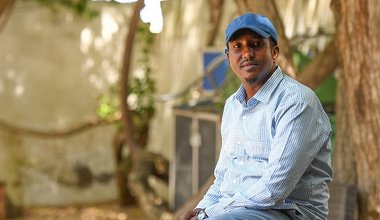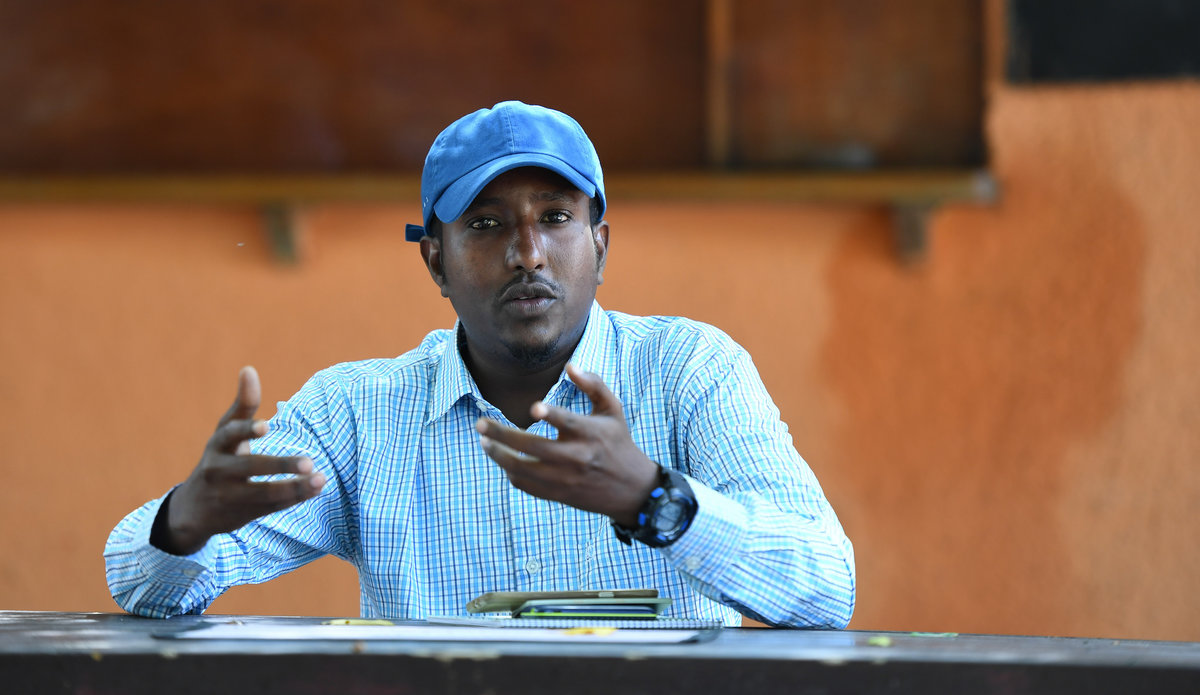Human rights advocate Abdinasir Nur: Defending the defenceless
A poignant childhood experience inspired Abdinasir Nur’s passion for defending human rights.
As a young student, Abdinasir attended a school near a camp for internally displaced persons (IDPs) in Somalia’s capital city of Mogadishu. He would often visit the camp, motivated by a keen interest in the daily struggles of the most vulnerable.
"I was aware of what was happening around me, and I witnessed human rights abuses in the camp. I became eager to defend the rights of the defenseless,” Abdinasir recalls.
The 32-year-old activist now works for the Organization for Somalis’ Protection and Development (OSPAD), a non-governmental group advocating for the rights of women and children. A deeply spiritual person, Abdinasir believes that his actions will ultimately earn him ‘ajr,’or a reward from Allah.
“I always wanted to become a human rights defender, to speak out for the oppressed, because I like assisting people,” he notes.
At OSPAD, Abdinasir works closely with victims of sexual violence who live in temporary settlements or in IDP camps. A typical day in Abdinasir’s life is devoted to vulnerable women and girls, helping them to receive the services and support that they need within the shortest time possible.
“As an organization, we don’t have some of the services required by the victims, such as a laboratory for examination and tests. We refer such cases to other institutions like Medina Hospital,” Abdinasir explains.
His work takes him across Mogadishu and its outskirts, and also to the Lower Shabelle and Galguduud regions.
“We offer training inside and outside the IDP camps to help women and girls protect themselves against sexual violence,” Abdinasir says, adding that this crime poses a threat to peaceful living in any community.
OSPAD also provides emergency ambulance services and psycho-social support to victims of sexual violence in a collaborative effort with government agencies and other non-governmental organizations.
Abdinasir notes that one of the most critical support mechanisms is the Ceebla Crisis Line, which runs a counseling centre and operates a toll-free helpline for rape survivors.

“Some of the survivors are referred to us after they call the 5555 number for assistance,” Abdinasir says. “On average, within a month we receive about five cases through the crisis line.”
Other interventions by OSPAD include the establishment of safe houses in Barawe and Marka in the Lower Shabelle region, where survivors of sexual violence seek refuge before reintegrating into society.
“Survivors are terrified by their traumatic experiences. Although most of them know their violators, they are afraid to speak out or identify them. To give them a safe haven until they recover from their trauma, we provide free accommodation and food for a period of up to three months,” Abdinasir explains.
Abdinasir says that rape survivors need justice as much as they need support, and he says he is appalled by the impunity enjoyed by sexual offenders. He welcomes the ongoing efforts to end conflict-related sexual violence in Somalia, and is determined to help build a safe environment in which his ten-month-old daughter can live without fear.
“I have big dreams for her. As a father, I would want Somalia to be peaceful so that my daughter grows up in a stable environment,” he says.
Recently, the Federal Government of Somalia took a significant step towards ending the impunity enjoyed by perpetrators of sexual crimes by drafting the Sexual Offences Bill, which establishes stiff penalties for sexual offenders and their collaborators. Already endorsed by the cabinet, the bill is currently awaiting parliamentary approval and the federal presidency. Once enacted, the new law will take precedence over the country’s traditional justice system, which has been a boon to sexual offenders for many years on account of the light sentences meted out for grave crimes such as rape.
The United Nations Assistance Mission in Somalia (UNSOM) supports the efforts of the Federal Government in Somalia to eliminate conflict-related sexual violence, working closely with the Ministry of Women and Human Rights Development to engage communities as well as traditional and religious leaders to curb the crime’s incidence.
 UN
UN





